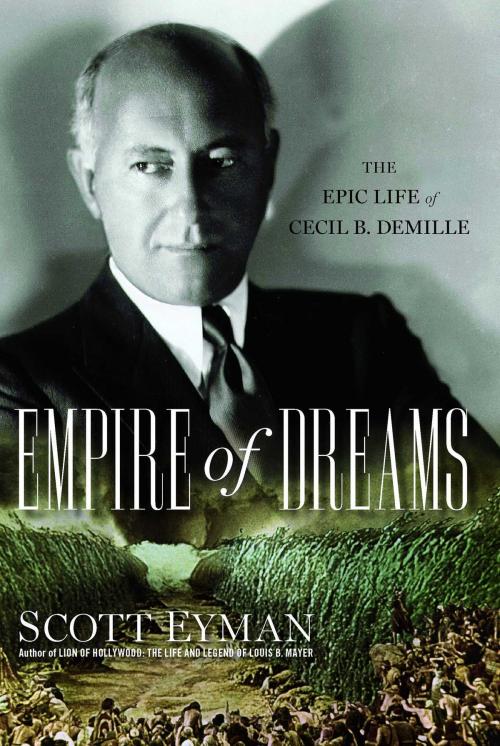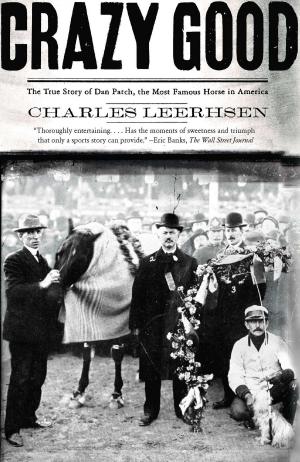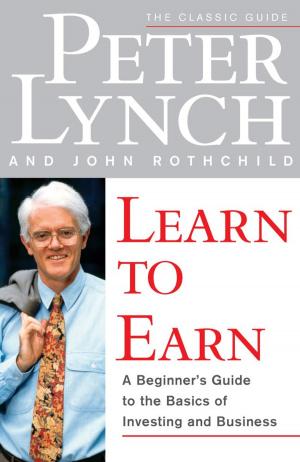Empire of Dreams
The Epic Life of Cecil B. DeMille
Nonfiction, Entertainment, Film, History & Criticism, Biography & Memoir, Entertainment & Performing Arts| Author: | Scott Eyman | ISBN: | 9781439180419 |
| Publisher: | Simon & Schuster | Publication: | September 7, 2010 |
| Imprint: | Simon & Schuster | Language: | English |
| Author: | Scott Eyman |
| ISBN: | 9781439180419 |
| Publisher: | Simon & Schuster |
| Publication: | September 7, 2010 |
| Imprint: | Simon & Schuster |
| Language: | English |
BEST KNOWN AS THE DIRECTOR of such spectacular films as The Ten Commandments and King of Kings, Cecil B. DeMille lived a life as epic as any of his cinematic masterpieces.
As a child DeMille learned the Bible from his father, a theology student and playwright who introduced Cecil and his older brother, William, to the theater. Tutored by impresario David Belasco, DeMille discovered how audiences responded to showmanship: sets, lights, costumes, etc. He took this knowledge with him to Los Angeles in 1913, where he became one of the movie pioneers, in partnership with Jesse Lasky and Lasky’s brother-in-law Samuel Goldfish (later Goldwyn). Working out of a barn on streets fragrant with orange blossom and pepper trees, the Lasky company turned out a string of successful silents, most of them directed by DeMille, who became one of the biggest names of the silent era. With films such as The Squaw Man, Brewster’s Millions, Joan the Woman, and Don’t Change Your Husband, he was the creative backbone of what would become Paramount Studios. In 1923 he filmed his first version of The Ten Commandments and later a second biblical epic, King of Kings, both enormous box-office successes*.*
Although his reputation rests largely on the biblical epics he made, DeMille’s personal life was no morality tale. He remained married to his wife, Constance, for more than fifty years, but for most of the marriage he had three mistresses simultaneously, all of whom worked for him. He showed great loyalty to a small group of actors who knew his style, but he also discovered some major stars, among them Gloria Swanson, Claudette Colbert, and later, Charlton Heston.
DeMille was one of the few silent-era directors who made a completely successful transition to sound. In 1952 he won the Academy Award for Best Picture with The Greatest Show on Earth. When he remade The Ten Commandments in 1956*,* it was an even bigger hit than the silent version. He could act, too: in Billy Wilder’s classic film Sunset Boulevard, DeMille memorably played himself*.*
In the 1930s and 1940s DeMille became a household name thanks to the Lux Radio Theater, which he hosted. But after falling out with a union, he gave up the program, and his politics shifted to the right as he championed loyalty oaths and Sen. Joseph McCarthy’s anticommunist witch hunts.
As Scott Eyman brilliantly demonstrates in this superbly researched biography, which draws on a massive cache of DeMille family papers not available to previous biographers, DeMille was much more than his clichéd image. A gifted director who worked in many genres; a devoted family man and loyal friend with a highly unconventional personal life; a pioneering filmmaker: DeMille comes alive in these pages, a legend whose spectacular career defined an era.
BEST KNOWN AS THE DIRECTOR of such spectacular films as The Ten Commandments and King of Kings, Cecil B. DeMille lived a life as epic as any of his cinematic masterpieces.
As a child DeMille learned the Bible from his father, a theology student and playwright who introduced Cecil and his older brother, William, to the theater. Tutored by impresario David Belasco, DeMille discovered how audiences responded to showmanship: sets, lights, costumes, etc. He took this knowledge with him to Los Angeles in 1913, where he became one of the movie pioneers, in partnership with Jesse Lasky and Lasky’s brother-in-law Samuel Goldfish (later Goldwyn). Working out of a barn on streets fragrant with orange blossom and pepper trees, the Lasky company turned out a string of successful silents, most of them directed by DeMille, who became one of the biggest names of the silent era. With films such as The Squaw Man, Brewster’s Millions, Joan the Woman, and Don’t Change Your Husband, he was the creative backbone of what would become Paramount Studios. In 1923 he filmed his first version of The Ten Commandments and later a second biblical epic, King of Kings, both enormous box-office successes*.*
Although his reputation rests largely on the biblical epics he made, DeMille’s personal life was no morality tale. He remained married to his wife, Constance, for more than fifty years, but for most of the marriage he had three mistresses simultaneously, all of whom worked for him. He showed great loyalty to a small group of actors who knew his style, but he also discovered some major stars, among them Gloria Swanson, Claudette Colbert, and later, Charlton Heston.
DeMille was one of the few silent-era directors who made a completely successful transition to sound. In 1952 he won the Academy Award for Best Picture with The Greatest Show on Earth. When he remade The Ten Commandments in 1956*,* it was an even bigger hit than the silent version. He could act, too: in Billy Wilder’s classic film Sunset Boulevard, DeMille memorably played himself*.*
In the 1930s and 1940s DeMille became a household name thanks to the Lux Radio Theater, which he hosted. But after falling out with a union, he gave up the program, and his politics shifted to the right as he championed loyalty oaths and Sen. Joseph McCarthy’s anticommunist witch hunts.
As Scott Eyman brilliantly demonstrates in this superbly researched biography, which draws on a massive cache of DeMille family papers not available to previous biographers, DeMille was much more than his clichéd image. A gifted director who worked in many genres; a devoted family man and loyal friend with a highly unconventional personal life; a pioneering filmmaker: DeMille comes alive in these pages, a legend whose spectacular career defined an era.















